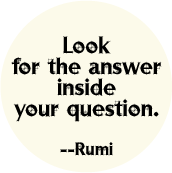Hers was a blinding faith
Sow bright
That it often left her without peer
Few could fathom such countenance
As she left them smiles behind
A grate number are partial
To glean faint moonlight
Mirror dim reflections
Of their dreary world
Rather than stare into one such bright star
Of such undifferentiated light
In discriminate hope
From celestial furnaces
Most believe
Better to be leery
Anywhere near foreboding
Inclement whether
Shoes dropping
On roads paved with good intentions
Or easy devotion to cynical amasses
Having it made
In the shade
Or even to a void in certitude
More at home groping in the dark
Than by a blinding faith
This poem is an ode to faith. Faith is metaphysical optimism, the blood that beats through wholehearted living. Faith is only manifest in the mettle of life fully lived, put to the test. Such a way of life is akin to the scientific method, but its subject is subjectivity, metaphysics, a life lived to discover or confirm how metaphysical optimism can transform living. Bold testing is the natural course of faith. Where and how far can faith take us? Empirical skepticism, the fuel that powers the engine of science, is analogous to this bold testing. Yet, scientists, who are subjects themselves, often project their own hubris onto subjective matters, leveling “spirituality” for putting forth bold — unfortunately, sometimes bald — faith assumptions for good living. All the while, there is a nagging tendency to conveniently overlook that there is no such thing as an assumptionless philosophy, even by those subjects operating in scientific endeavors. Yep, as quantum physicists know awe to well, the experimenter changes the experimental results. In “real world” terms this is simply recognizing that what questions we ask determine the answers. We, subjects awe, deeply participate in whatever answers will come our way.  I, for one, am much more fascinated by the questions of how we transform our lives through the science of living matters, than simply nailing down the science of dead matter, fixated on predictability and control. Of course, nailing down stuff plagues the human condition in both scientific and metaphysical endeavors. As Alfred, Lord Tennyson, wrote “There lives more faith in honest doubt, believe me, than in half the creeds.” The question still remains: in which half of the creeds does faith live? This can only be tested and confirmed by personal discovery, in our living. While there is a lot of truth in the truism that misery loves company, I would venture to say that passionate optimism is far more attractive than life-sucking cynicism. This poem is intended to capture the reactions of living in the wake of bold metaphysical optimism, often through an irresistible pull to live fuller lives, and sometimes by shrinking into the seeming security of smaller certitudes. May you find yourself putting your deepest faith to the test, and in this mettle may you discover many bright and beautiful alloys along the way.
I, for one, am much more fascinated by the questions of how we transform our lives through the science of living matters, than simply nailing down the science of dead matter, fixated on predictability and control. Of course, nailing down stuff plagues the human condition in both scientific and metaphysical endeavors. As Alfred, Lord Tennyson, wrote “There lives more faith in honest doubt, believe me, than in half the creeds.” The question still remains: in which half of the creeds does faith live? This can only be tested and confirmed by personal discovery, in our living. While there is a lot of truth in the truism that misery loves company, I would venture to say that passionate optimism is far more attractive than life-sucking cynicism. This poem is intended to capture the reactions of living in the wake of bold metaphysical optimism, often through an irresistible pull to live fuller lives, and sometimes by shrinking into the seeming security of smaller certitudes. May you find yourself putting your deepest faith to the test, and in this mettle may you discover many bright and beautiful alloys along the way.


